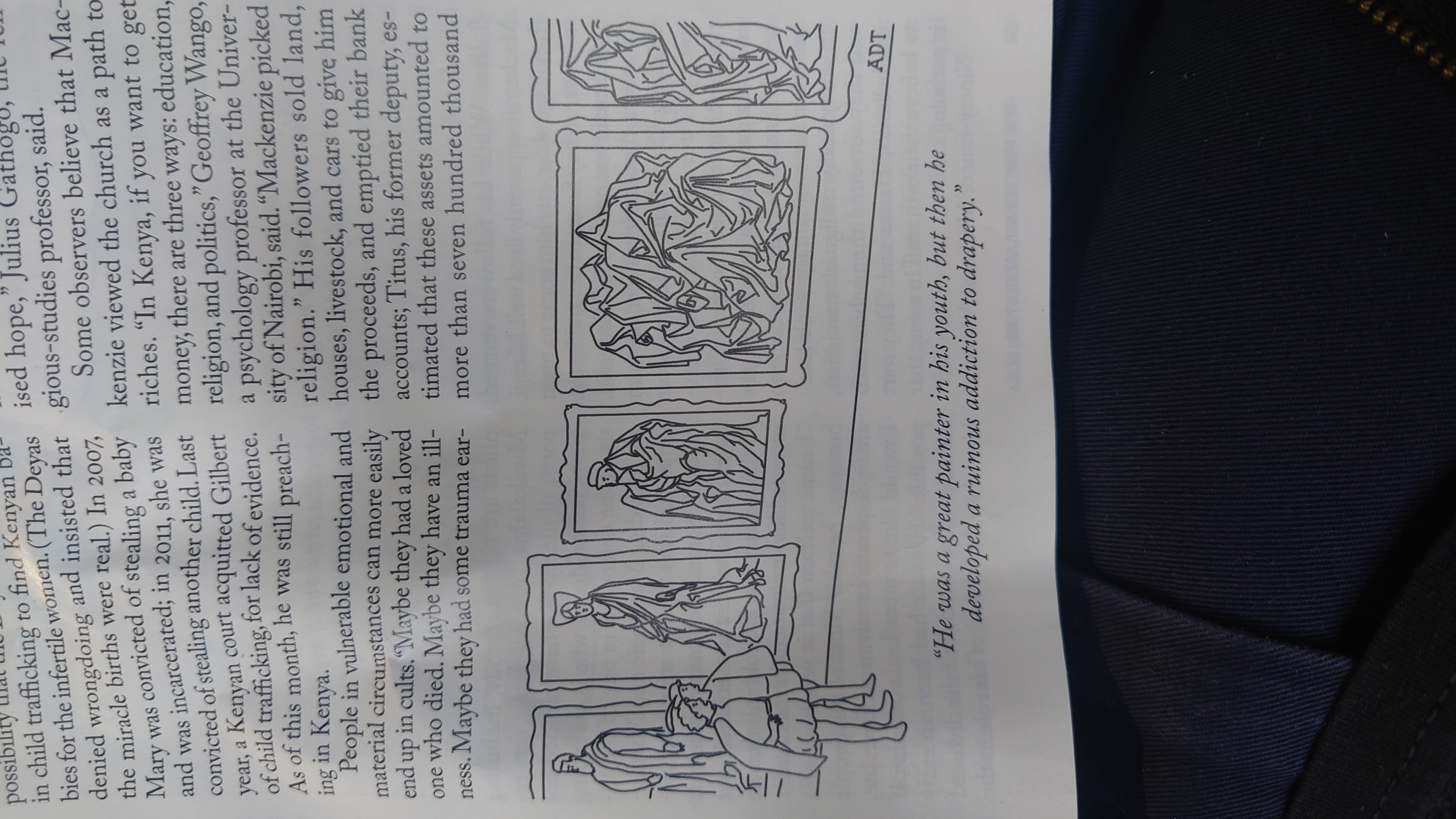"Cults and Exploitation in Kenya: Art and Social Commentary"
Notes on the Image

Context of Cults and Exploitation
- The image discusses the issue of cults in Kenya, particularly focusing on individuals exploiting vulnerable populations.
- Thoughts: This issue highlights the need for greater education and awareness regarding the dangers of cults, especially in areas where individuals may be desperate or seeking hope.
- Additional Information: Cults often prey on people during times of vulnerability such as grief or illness, making it essential to provide support systems to those in such situations.
The Case of Mary and Gilbert
- Mary was convicted twice for child theft and has been incarcerated, while Gilbert was acquitted of child trafficking charges.
- Thoughts: This raises questions about the legal system's effectiveness in handling such sensitive cases and the factors leading to these convictions.
- Additional Information: Child trafficking is a serious issue worldwide, and the legal responses can vary significantly from one country to another.
Motivation Behind Religious Influence
- Geoffrey Wango, a psychology professor, suggests that people may see religion as a pathway to wealth in Kenya.
- Thoughts: This perspective suggests a troubling intersection between faith and financial exploitation, which can lead to corrupt practices within religious communities.
- Additional Information: The combination of socio-economic issues with religious fervor can create environments where exploitation is more likely to occur.
Artistic Commentary
- The image features a humorous critique of an unnamed painter’s work, focusing on an "addiction to drapery."
- Thoughts: This offers insight into how art criticism often reflects on the artist's choices and may serve as a commentary on the art world itself.
- Additional Information: The phrase "ruinous addiction to drapery" can imply that the painter may have been overly focused on fabric and clothing in their works to the detriment of other artistic elements.
Conclusion
- The image combines serious discussions around exploitation in cults with a satirical take on art criticism, emphasizing societal issues and reflective commentary within different domains.
Reference:
freedomcollaborative.org
A BBC investigation exposes Kenya's child-trafficking nightmare and ...
www.cnn.com
How faith turned deadly for Kenyan cult followers who chose ... - CNN
www.aljazeera.com
Kenya declares cult an 'organised criminal group' after starvation ...